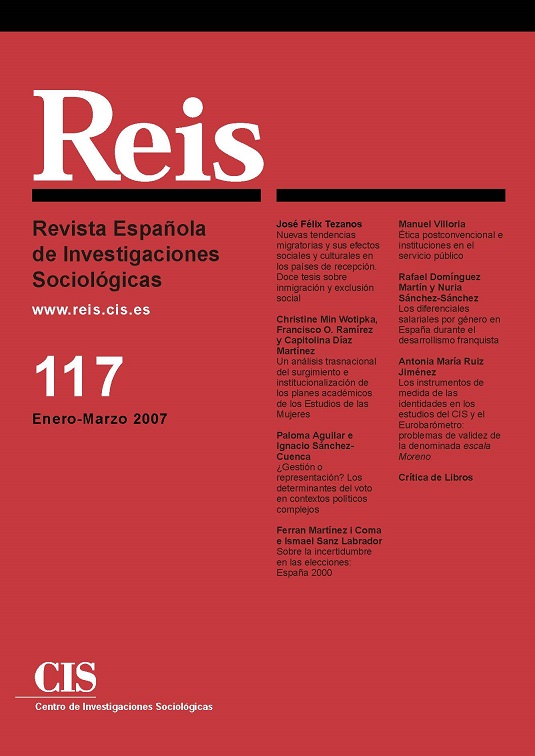A cross-national analysis of the emergence and institutionalization of Women’s Studies curricula
DOI:
https://doi.org/10.5477/cis/reis.117.35Keywords:
Women, Higher EducationAbstract
This project uses a quantitative approach to provide a comparative and longitudinal analysis of the expansion of women?s studies curricula, defined as the offering of the first women?s studies course at a university from 1970-2000. Our sample consists of 22 member countries of the Organization for Economic Cooperation and Development. Using event history models of estimation, we test a number of different explanations at the national- and university-levels: level of national economic and educational development, degree of political rights, extent of elitism of the higher education system, and women?s status variables. Employing a world society theoretical perspective, we also test the influence of international linkages to models of human and women?s rights. These variables consist of indicators of propensity to ratify human and women?s rights treaties. Our findings suggest that offering a first women?s studies course is positively influenced by a country?s degree of educational development as measured by the proportion of children attending secondary school; the extent to which a higher education system is less elite; and the number of international human rights treaties ratified by a country.We offer our interpretations of these findings and suggestions for avenues for further research.
Downloads
Downloads
Published
How to Cite
Issue
Section
License
Copyright (c) 2024 Revista Española de Investigaciones Sociológicas

This work is licensed under a Creative Commons Attribution-ShareAlike 4.0 International License.
Permite Compartir — copiar y redistribuir el material en cualquier medio o formato, Adaptar — remezclar, transformar y construir a partir del material para cualquier propósito, incluso comercialmente.








